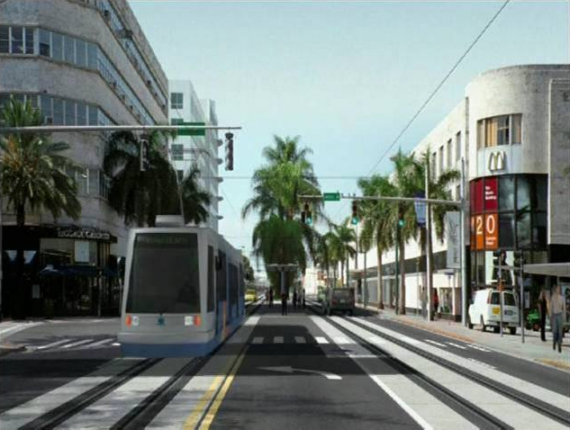Miami Beach’s plan to bring light rail to the city is moving forward after one city commissioner briefly held up the train.
On Wednesday night, a majority of the city commission declined to reconsider its recent vote directing City Manager Jimmy Morales to begin negotiations with French rail firm Alstom to develop a light rail system in South Beach that would eventually be connected to a similar light rail line in downtown Miami via the MacArthur Causeway. The Miami Beach portion of the so-called Baylink project is estimated to cost $400 million.
Commissioner John Elizabeth Aleman had expressed concerns about the compatibility of Alstom’s technology with other light rail systems should the city of Miami choose a different vendor for its rail line. “If this was ultimately just going to be a Sobe circulator at that price tag, I didn’t think that was what we were looking for,” Aleman said during the meeting. “The interoperability of both systems is crucial.”
Aleman said Alstom officials assured her the project, called the Greater Miami Tramlink Partnership, will be able to connect to Miami’s tracks even if the firm does not end up building it on the mainland.
Although Commissioner Kristen Rosen Gonzalez, the lone dissenter, told her colleagues that it was still in the city’s best interest to negotiate at the same time with Alstom as with the second-ranked and third-ranked firms. “I think Miami Beach should send the message that we don’t bargain for the best price,” Gonzalez said. “We have a moral and fiduciary responsibility to find out pricing on the three different technologies.”
Connect Miami Beach and Miami Beach Mobility Partners have both filed bid protests, arguing that the process was flawed that ranked Alstom’s bid first. Alstom initiated the call for train proposals when the company offered the city an unsolicited proposal bid last year. City of Miami and Miami-Dade County officials have said they prefer using the same vendor so both systems can operate on a single schedule with no transfer points.
